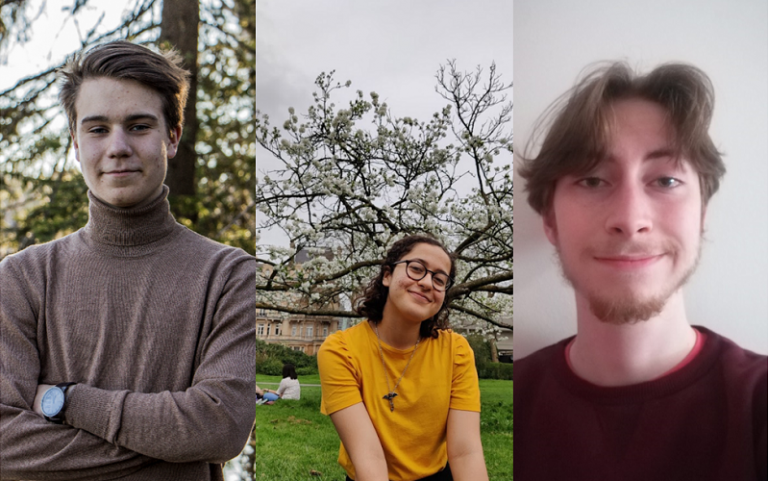Economics students named as 2021 Laidlaw Scholars
4 May 2021
Three Department of Economics’ students have been named as recipients of the prestigious Laidlaw Scholarships.

Photo: Laidlaw scholars Matias Mäkiranta, Ananya Ashta and Phin Godfrey
Laidlaw Scholarships are awarded to undergraduate first year students through a competitive process where applicants submit a proposal to undertake their own research project, or request to work on an existing project with researchers from UCL departments.
This year, a record number of 341 first-year undergraduates competed for 26 places on UCL's branch of the prestigious programme, which runs at a number of overseas and UK universities including St. Andrew's and Durham.
The Department of Economics Laidlaw Scholars are:
Matias Mäkiranta
Title: Nudges and Sludges in Online Stores
Description: Digital nudging is a tool, which is used to lead people to make decisions online. In this research project, I will collect examples of digital nudges from online stores, analyse their effect for consumption behaviour and conduct interviews with digital marketing consultants, who have designed these nudges. I will also examine how people can be nudged to do sustainable things online, such as compensate their emissions for the orders they make online. The research project will generate important information about digital nudges and digital markets in general. Furthermore, the project will have an impact regarding sustainable consumption behaviour and has potential to create new tools for reducing carbon dioxide emissions caused by online shopping.
Project Supervisor: Lorenzo Lotti
Ananya Ashta
Title: History of the future city: Subaltern house-building in early 20th century Simla
Description: The summer project will be involved in analysing a body of archival material on house-building applications in the late 19th and early 20th century Simla, the British summer capital in India. It will also involve further archival research in the British Library, London to find documents, maps, and reports on Simla during this period. The aim will be to capture the history of Simla’s urban future, by examining the technological innovations in ordinary housebuilding during the twilight of the British Empire. Research questions: - How did subaltern house-building in the late 19th-early 20th cent Simla shape its current trajectory? - What do the planning applications for incremental house-building by subaltern citizens (low-castes, migrants and minority religions) tell us about the ways that colonial governance shaped India's urban futures? - How do these subaltern house biographies challenge top-down urban development initiatives as well as the hegemony of seeing the city through Google maps?
Project Supervisor: Ayona Datta
Phin Godfrey
Title: Online education: effects on academic outcomes and how these vary by student characteristics
Description: The COVID crisis has forced many higher education institutions (HEI) to move to online instruction. Hundreds of thousands of students enrolled in HEI institutions around the country at this very moment are taking classes remotely. But how effective is online instruction compared to traditional, face to face, instruction? An answer to this question is urgently needed, as critics question whether online teaching can guarantee the same level of quality as traditional methods. In this project, we approach this question from an empirical point of view using quantitative and qualitative data and modern econometric methods to establish causality and tease out the specific effects of different teaching and learning methods on students with different characteristics.
Project Supervisor: Parama Chaudhury and Michela Tincani
 Close
Close

